Easy Virtue
 for sexual content, brief partial nudity, and smoking throughout.
for sexual content, brief partial nudity, and smoking throughout.
Reviewed by: Kenneth R. Morefield
CONTRIBUTOR
| Moral Rating: | Offensive |
| Moviemaking Quality: |
|
| Primary Audience: | Adults |
| Genre: | Romance Comedy |
| Length: | 1 hr. 37 min. |
| Year of Release: | 2008 |
| USA Release: |
May 22, 2009 (limited) DVD: September 15, 2009 |
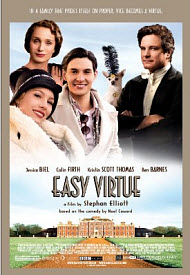
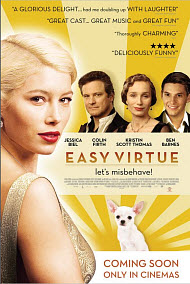

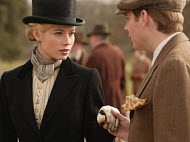
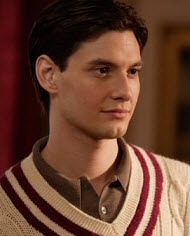
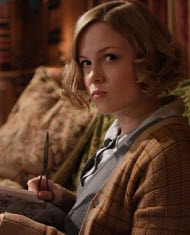
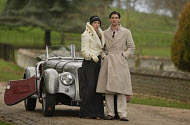
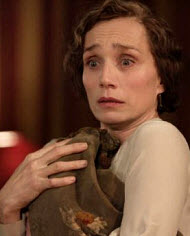
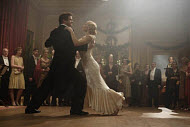

| Featuring |
|---|
| Jessica Biel, Colin Firth, Ben Barnes, Kristin Scott Thomas, Kimberley Nixon, Katherine Parkinson, Kris Marshall, Christian Brassington, Charlotte Riley, Jim McManus, Pip Torrens, Jeremy Hooton, Joanna Bacon, Maggie Hickey, John Warburton, Georgie Glen, David Longstaff, Michael Archer, Rebel Penfold-Russell, Stewart Clarke, Oliver Reid, Joe Reid, Stephan Elliott, Sheridan Jobbins, Fizz |
| Director |
|
Stephan Elliott |
| Producer |
| Ealing Studios, Fragile Films, Endgame Entertainment, BBC Films, Joseph Abrams, Paul Brett, Alexandra Ferguson, Louise Goodsill, Douglas Hansen, Ralph Kamp, George McGhee, Sophie Meyer, Peter Nichols, Tim Smith, James Spring, James D. Stern, Barnaby Thompson, Cindy Wilkinson Kirven |
| Distributor |
“Let’s misbehave!”
“Easy Virtue” is a small film from the United Kingdom playing mostly in film festivals and art theaters and searching for that elusive buzz that will make it successful in a field of studio releases with massive budgets.
Directed by Stephan Elliot (best known for helming “The Adventures of Priscilla, Queen of the Desert”) and starring Jessica Biel, Colin Firth, and Kristin Scott Thomas, the film doesn’t lack for name recognition. It is loosely based on a play by Noel Coward but updated with (among other things) snippets of anachronistic music. Think of a cross between “A Room With a View,” “Moulin Rouge,” and “Meet the Parents.”
Biel plays newlywed Larita Whittaker who disrupts the staid family of her new husband, John (Ben Barnes) by driving race cars instead of horses, smoking indoors, and generally being American instead of the respectable, reserved British wife his family would prefer he have.
The film is rated PG-13. Depictions of sex and nudity are present, though relatively tame by today’s cultural standards. (Larita’s sister-in-law flashes her bare buttocks during a can-can dance; Larita and John are interrupted during intercourse; the father-in-law is shown visiting prostitutes in a flashback.) I don’t remember a large amount of profanity. Smoking and drinking is pretty heavy (as it can be in period pieces), and it is inferred that one character may have been using opium or some other drug, again in a flash-back.
Probably the most appealing thing about the film is the actors. Biel is a bit of a revelation, showing she is able to carry a film in a lead role and showing a range of ability in a part that demands a little bit more than a typical Hollywood ingénue part. Larita has to be bold by the film’s standards but show a core of vulnerability to make her sympathetic to the audience. The actress needs to be able to handle the witty repartee through which the conflict is framed in Coward’s play, but still embody the spunk and spirit that would disrupt a more reserved culture. Biel is up to the task and announces herself as a serious actress and not just a television celebrity.
Colin Firth is like the male version of Juliet Binoche—he has so much goodwill built up with the audience from so many previous roles, that it is a treat to see anything he is in. He has transitioned gracefully from youthful good looks to middle-aged charm, and he invests Mr. Whittaker with enough charm and sympathy than one almost forgets the character he plays is a bit of a cad.
Kristin Scott Thomas is equally well established, but while it is encouraging to see her get work, it is a bit discouraging to see an actress of her range and ability relegated to caricature roles. She struggles mightily to make Mrs. Whittaker a three dimensional human being, but the script is stacked too heavily in Larita’s favor, ultimately not trusting us to draw our own conclusions about the two women and their conflict, but instead stacking the deck so heavily that we are simultaneously told that some people are emotional monsters that we should hate even while we are being peppered with a constant overarching message about how horrible intolerance is in other circumstances.
Entering spoiler territory…
Ultimately, it was the tone and philosophy of the film, rather than any explicit content, that mediated my enjoyment. The climax—both emotional and narrative—centers on a wonderfully choreographed and thrillingly executed Tango between Biel’s character and Firth’s. It is a delicious example of old fashioned sexiness and charm, and there is an element of relief at seeing characters you like finally give in to being happy with one another, rather than unhappy with the people that stick-in-the-mud conservatives think they should be with to be counted moral—i.e., the people they actually married.
There’s an element of base pleasure in hearing the priggish mother-in-law and spoiled sisters-in-law finally get the telling off they so richly deserve, and there is an unquestioned sympathy that comes from the understated insistence that Mr. Whittaker’s spiritual and physical mid-life crisis is intimately tied to his traumatic war experience. Unfortunately, none of this gets us (or me, anyway) past the “ick” factor that he’s her husband’s father.
Grief—his at his war experience, hers at her first husband’s illness and death—is what makes these characters understand one another, deserve one another, and perhaps even love one another in a way that the people they married can’t. There is a deep sadness that permeates the film and engenders sympathy, but sympathy isn’t the same thing as approval. Ultimately, while I liked the look of the film and was charmed by the performers, my antipathy towards the characters, especially the ones I was supposed to like over and above the one’s I was supposed to dislike made “Easy Virtue” a hard film to recommend for Christian viewers.
That said, if you are already an admirer of the genre (drawing room comedy) or of Firth or Biel, you’ll probably enjoy the film.
Violence: Minor / Profanity: Minor / Sex/Nudity: Mild
See list of Relevant Issues—questions-and-answers.





